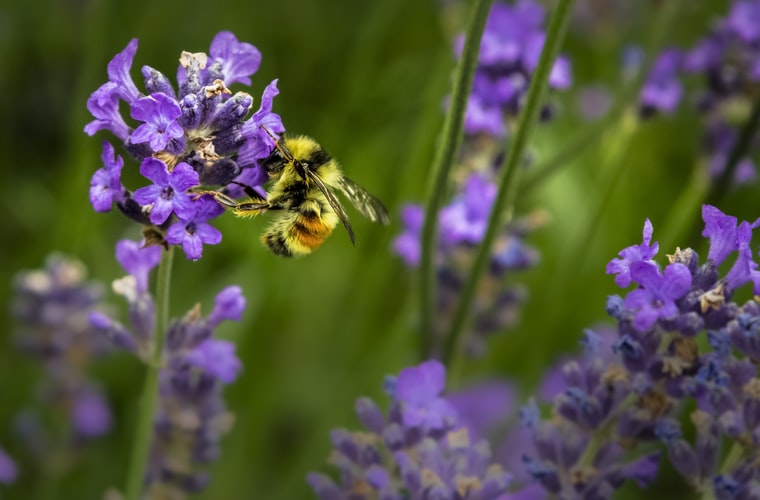
Environment Flourishing in Wake of Quarantine.
Share
First and foremost, please do not take the following as belittling or making light of the current pandemic sweeping the world. Rather, we are showing a silver lining to one of the worst situations we have faced as a species in recent memory.
With doom and gloom, as well as overhyped sensationalism becoming the norm, we are trying to show some positivity in a situation that has many of us grieving in uncertainty.
Obviously, the situation is devastating for entire countries and has sent the world reeling in health and economic status. Billions are affected either directly or indirectly from the fallout of the coronavirus pandemic and the world has almost ground to a halt.
However, there are clear positives to be gained from many countries facing lockdown and quarantine, especially the reduction of harmful emissions into our atmosphere.

The Coronavirus has Slowed Global Warming.
As global economies have flourished since the industrial age, our global fossil fuel emissions spewing harmful waste into the atmosphere has seen a relative increase as well.
That was until recently when the coronavirus pandemic forced shutdowns in entire countries and the United States having been declared the country with the most cases at the time of writing at 81,321. Which are only reported cases.

During the forced closure of many key contributors of emissions, pollutants have been at their lowest in years and signs of rejuvenation in relative health and nature are starting to emerge.
With China's almost complete shut down in response to the coronavirus pandemic, levels of pollution in their respective atmosphere are at absolute minimal levels. The drop in pollutants, namely nitrogen dioxide, is thanks to the lack of cars, trucks, power and industrial plants in use since January 1st and February 25th.
The Ozone Monitoring Instrument (OMI) is measuring the drop in pollutants after a decrease in flights by 70% at the time and coal use from power stations at a 4 year low. Combined with a drop in steel manufacture and oil refining, estimates are China has lowered their overall emissions by approximately 25%, or about 100 million tons.

Fewer People Are Dying From Pollution.
Strangely enough, the dropping air pollution over China has actually contributed to saving more lives from chronic respiratory diseases than have been lost due to coronavirus according to Marshall Bourke of Stanford University Department of Earth System Science.
The link between air quality and health has been established over a 30-year analysis with 652 cities in 24 countries and six continents that found the higher the air pollution, the faster you die.
Bourke recently stated that:
"The reductions in air pollution in China caused by this economic disruption likely saved twenty times more lives in China than have currently been lost due to infection with the virus in that country,"
NASA's Goddard pace Flight Centre personnel have been quoted as saying the air quality is the most dramatic drop-off over such a wide area for an isolated event. The data collected by the OMI and Tropospheric Monitoring Instrument (TROPOMI) reflects this perfectly.
Although there is usually a drop in emissions over the Chinese Lunar New Year, the curb of emissions has continued long after the break.

Previous declines in climate killing emissions have meant a resurge after the event or pandemic is over, but new projections on economic growth suggest that the impact of the coronavirus may significantly change the way we approach daily life.
Prudent spending of economic stimuli and funding of renewables, as well as global work behaviours like working from home, can drastically decrease the number of emissions and power needed for many populations.
What does this mean for the atmosphere?

Our Ozone Layer is Healing.
Along with the progress in the Montreal Protocol - an agreement made in 1987 to stop producing ozone-depleting substances - our ozone later has rapidly been "healing".
This is major news for us Australians as the recent slew of droughts and floods is subject to the jet streams that force rain south, away from our coasts. Jet streams are high altitude air currents that are directly influenced by our ozone.
This has a negative effect on not just rainfall, but the ocean's currents as well.
When the ozone is depleted, our reliable jet stream has migrated further away, however, thanks to continued reparation of the ozone we could reverse the effects made by our emissions and disruption of the atmosphere.
As of now, the ozone is recovering and the jet stream is moving north.
We have our fingers crossed more data is available and we can assess the larger impact that emissions have on our environment.

Nature is Flourishing.
With the unfortunate situation and mandatory lockdown in Italy, the streets and canals are reminiscent of a ghost town. That is except for the returning swans and fish that are treating the usual murky aqua streets as their newest playground.
Locals have remarked on the changes in the city of Venice, that there are more birds and bees and the sounds of insects are far more prominent. The same locals have commented on the state of the water in the canals, with many never having seen the bottom before being afforded glassy tabletop views.

Australian resident of Rome, Felicity Griffin Clarke, took to social media and said:
"Nature is taking back the city. I live right near the Coliseum and walk my dog down Via Fori every day. Instead of thousands of tourists, the street is full of flowers, bees and birds. The air is clean and all you can hear is birdsong. It's easy to feel scared and overwhelmed by what is happening, but it's also important to try and find the good things."
And we think that's a good a note as any to leave it on.
Stay safe, good luck.
#Space_Aus




